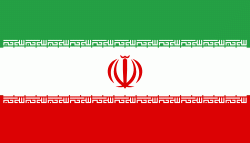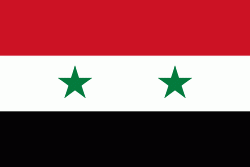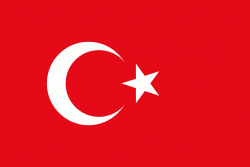Kurdish language
Kurdish (Kurdî, کوردی) is a language or a group of languages spoken by Kurds in the geo-cultural region of Kurdistan and the Kurdish diaspora. Kurdish constitutes a dialect continuum, belonging to Western Iranian languages in the Indo-European language family. The main three dialects or languages of Kurdish are Northern Kurdish (Kurmanji), Central Kurdish (Sorani), and Southern Kurdish (Xwarîn).
A separate group of non-Kurdish Northwestern Iranian languages, the Zaza–Gorani languages, are also spoken by several million ethnic Kurds. The majority of the Kurds speak Kurmanji, and most Kurdish texts are written in Kurmanji and Sorani. Kurmanji is written in the Hawar alphabet, a derivation of the Latin script, and Sorani is written in the Sorani alphabet, a derivation of Arabic script.
The classification of Laki as a dialect of Southern Kurdish or as a fourth language under Kurdish is a matter of debate, but the differences between Laki and other Southern Kurdish dialects are minimal.
The literary output in Kurdish was mostly confined to poetry until the early 20th century, when more general literature became developed. Today, the two principal written Kurdish dialects are Kurmanji and Sorani. Sorani is, along with Arabic, one of the two official languages of Iraq and is in political documents simply referred to as "Kurdish".
The Kurdish languages belong to the Iranian branch of the Indo-European family. They are generally classified as Northwestern Iranian languages, or by some scholars as intermediate between Northwestern and Southwestern Iranian. Martin van Bruinessen notes that "Kurdish has a strong South-Western Iranian element", whereas "Zaza and Gurani [...] do belong to the north-west Iranian group".
Ludwig Paul concludes that Kurdish seems to be a Northwestern Iranian language in origin, but acknowledges that it shares many traits with Southwestern Iranian languages like Persian, apparently due to longstanding and intense historical contacts.
Windfuhr identified Kurdish dialects as Parthian, albeit with a Median substratum. Windfuhr and Frye assume an eastern origin for Kurdish and consider it as related to eastern and central Iranian dialects.
The present state of knowledge about Kurdish allows, at least roughly, drawing the approximate borders of the areas where the main ethnic core of the speakers of the contemporary Kurdish dialects was formed. The most argued hypothesis on the localisation of the ethnic territory of the Kurds remains D.N. Mackenzie's theory, proposed in the early 1960s (Mackenzie 1961). Developing the ideas of P. Tedesco (1921: 255) and regarding the common phonetic isoglosses shared by Kurdish, Persian, and Baluchi, Mackenzie concluded that the speakers of these three languages may once have been in closer contact.
A separate group of non-Kurdish Northwestern Iranian languages, the Zaza–Gorani languages, are also spoken by several million ethnic Kurds. The majority of the Kurds speak Kurmanji, and most Kurdish texts are written in Kurmanji and Sorani. Kurmanji is written in the Hawar alphabet, a derivation of the Latin script, and Sorani is written in the Sorani alphabet, a derivation of Arabic script.
The classification of Laki as a dialect of Southern Kurdish or as a fourth language under Kurdish is a matter of debate, but the differences between Laki and other Southern Kurdish dialects are minimal.
The literary output in Kurdish was mostly confined to poetry until the early 20th century, when more general literature became developed. Today, the two principal written Kurdish dialects are Kurmanji and Sorani. Sorani is, along with Arabic, one of the two official languages of Iraq and is in political documents simply referred to as "Kurdish".
The Kurdish languages belong to the Iranian branch of the Indo-European family. They are generally classified as Northwestern Iranian languages, or by some scholars as intermediate between Northwestern and Southwestern Iranian. Martin van Bruinessen notes that "Kurdish has a strong South-Western Iranian element", whereas "Zaza and Gurani [...] do belong to the north-west Iranian group".
Ludwig Paul concludes that Kurdish seems to be a Northwestern Iranian language in origin, but acknowledges that it shares many traits with Southwestern Iranian languages like Persian, apparently due to longstanding and intense historical contacts.
Windfuhr identified Kurdish dialects as Parthian, albeit with a Median substratum. Windfuhr and Frye assume an eastern origin for Kurdish and consider it as related to eastern and central Iranian dialects.
The present state of knowledge about Kurdish allows, at least roughly, drawing the approximate borders of the areas where the main ethnic core of the speakers of the contemporary Kurdish dialects was formed. The most argued hypothesis on the localisation of the ethnic territory of the Kurds remains D.N. Mackenzie's theory, proposed in the early 1960s (Mackenzie 1961). Developing the ideas of P. Tedesco (1921: 255) and regarding the common phonetic isoglosses shared by Kurdish, Persian, and Baluchi, Mackenzie concluded that the speakers of these three languages may once have been in closer contact.
Country
-
Iran
Iran, officially the Islamic Republic of Iran, and also called Persia, is a country located in Western Asia. It is bordered by Iraq and Turkey to the west, by Azerbaijan and Armenia to the northwest, by the Caspian Sea and Turkmenistan to the north, by Afghanistan and Pakistan to the east, and by the Gulf of Oman and the Persian Gulf to the south. It covers an area of 1.64 e6km2, making it the 17th-largest country. Iran has an estimated population of 86.8 million, making it the 17th-most populous country in the world, and the second-largest in the Middle East. Its largest cities, in descending order, are the capital Tehran, Mashhad, Isfahan, Karaj, Shiraz, and Tabriz.
The country is home to one of the world's oldest civilizations, beginning with the formation of the Elamite kingdoms in the fourth millennium BC. It was first unified by the Medes, an ancient Iranian people, in the seventh century BC, and reached its territorial height in the sixth century BC, when Cyrus the Great founded the Achaemenid Persian Empire, which became one of the largest empires in history and a superpower. The Achaemenid Empire fell to Alexander the Great in the fourth century BC and was subsequently divided into several Hellenistic states. An Iranian rebellion established the Parthian Empire in the third century BC, which was succeeded in the third century AD by the Sassanid Empire, a major world power for the next four centuries. Arab Muslims conquered the empire in the seventh century AD, which led to the Islamization of Iran. It subsequently became a major center of Islamic culture and learning, with its art, literature, philosophy, and architecture spreading across the Muslim world and beyond during the Islamic Golden Age. Over the next two centuries, a series of native Iranian Muslim dynasties emerged before the Seljuk Turks and the Mongols conquered the region. In the 15th century, the native Safavids re-established a unified Iranian state and national identity, and converted the country to Shia Islam. Under the reign of Nader Shah in the 18th century, Iran presided over the most powerful military in the world, though by the 19th century, a series of conflicts with the Russian Empire led to significant territorial losses. The early 20th century saw the Persian Constitutional Revolution. Efforts to nationalize its fossil fuel supply from Western companies led to an Anglo-American coup in 1953, which resulted in greater autocratic rule under Mohammad Reza Pahlavi and growing Western political influence. He went on to launch a far-reaching series of reforms in 1963. After the Iranian Revolution, the current Islamic Republic was established in 1979 by Ruhollah Khomeini, who became the country's first Supreme Leader. -
Mesopotamia
Mesopotamia is a historical region of Western Asia situated within the Tigris–Euphrates river system, in the northern part of the Fertile Crescent. Today, Mesopotamia occupies modern Iraq. In the broader sense, the historical region included present-day Iraq and parts of present-day Iran, Kuwait, Syria and Turkey.
The Sumerians and Akkadians (including Assyrians and Babylonians) originating from different areas in present-day Iraq, dominated Mesopotamia from the beginning of written history (c. 3100 BC) to the fall of Babylon in 539 BC, when it was conquered by the Achaemenid Empire. It fell to Alexander the Great in 332 BC, and after his death, it became part of the Greek Seleucid Empire. Later the Arameans dominated major parts of Mesopotamia (c. 900 BC – 270 AD). -
Syria
Syria (سُورِيَا or سُورِيَة), officially the Syrian Arab Republic (الجمهورية العربية السورية), is a Western Asian country located in the Eastern Mediterranean and the Levant. It is a unitary republic that consists of 14 governorates (subdivisions), and is bordered by the Mediterranean Sea to the west, Turkey to the north, Iraq to the east and southeast, Jordan to the south, and Israel and Lebanon to the southwest. Cyprus lies to the west across the Mediterranean Sea. A country of fertile plains, high mountains, and deserts, Syria is home to diverse ethnic and religious groups, including the majority Syrian Arabs, Kurds, Turkmens, Assyrians, Circassians, Armenians, Albanians, Greeks, and Chechens. Religious groups include Muslims, Christians, Alawites, Druze, and Yazidis. The capital and largest city of Syria is Damascus. Arabs are the largest ethnic group, and Sunni Muslims are the largest religious group. Syria is the only country that is governed by Ba'athists, who advocate Arab socialism and Arab nationalism. Syria is a member of the Non-Aligned Movement.
The name "Syria" historically referred to a wider region, broadly synonymous with the Levant, and known in Arabic as al-Sham. The modern state encompasses the sites of several ancient kingdoms and empires, including the Eblan civilization of the 3rd millennium BC. Aleppo and the capital city Damascus are among the oldest continuously inhabited cities in the world. In the Islamic era, Damascus was the seat of the Umayyad Caliphate and a provincial capital of the Mamluk Sultanate in Egypt. The modern Syrian state was established in the mid-20th century after centuries of Ottoman rule. After a period as a French mandate (1923–1946), the newly-created state represented the largest Arab state to emerge from the formerly Ottoman-ruled Syrian provinces. It gained de jure independence as a democratic parliamentary republic on 24 October 1945 when the Republic of Syria became a founding member of the United Nations, an act which legally ended the former French mandate (although French troops did not leave the country until April 1946). -
Turkey
Turkey (Türkiye ), officially the Republic of Türkiye (Türkiye Cumhuriyeti ), is a transcontinental country located mainly on the Anatolian Peninsula in Western Asia, with a small portion on the Balkan Peninsula in Southeast Europe. It shares borders with the Black Sea to the north; Georgia to the northeast; Armenia, Azerbaijan, and Iran to the east; Iraq to the southeast; Syria and the Mediterranean Sea to the south; the Aegean Sea to the west; and Greece and Bulgaria to the northwest. Cyprus is located off the south coast. Turks form the vast majority of the nation's population and Kurds are the largest minority. Ankara is Turkey's capital, while Istanbul is its largest city and financial centre.
One of the world's earliest permanently settled regions, present-day Turkey was home to important Neolithic sites like Göbekli Tepe, and was inhabited by ancient civilisations including the Hattians, Hittites, Anatolian peoples, Mycenaean Greeks, Persians and others. Following the conquests of Alexander the Great which started the Hellenistic period, most of the ancient regions in modern Turkey were culturally Hellenised, which continued during the Byzantine era. The Seljuk Turks began migrating in the 11th century, and the Sultanate of Rum ruled Anatolia until the Mongol invasion in 1243, when it disintegrated into small Turkish principalities. Beginning in the late 13th century, the Ottomans united the principalities and conquered the Balkans, and the Turkification of Anatolia increased during the Ottoman period. After Mehmed II conquered Constantinople (Istanbul) in 1453, Ottoman expansion continued under Selim I. During the reign of Suleiman the Magnificent, the Ottoman Empire became a global power. From the late 18th century onwards, the empire's power declined with a gradual loss of territories. Mahmud II started a period of modernisation in the early 19th century. The Young Turk Revolution of 1908 restricted the authority of the Sultan and restored the Ottoman Parliament after a 30-year suspension, ushering the empire into a multi-party period. The 1913 coup d'état put the country under the control of the Three Pashas, who facilitated the Empire's entry into World War I as part of the Central Powers in 1914. During the war, the Ottoman government committed genocides against its Armenian, Greek and Assyrian subjects. After its defeat in the war, the Ottoman Empire was partitioned.
